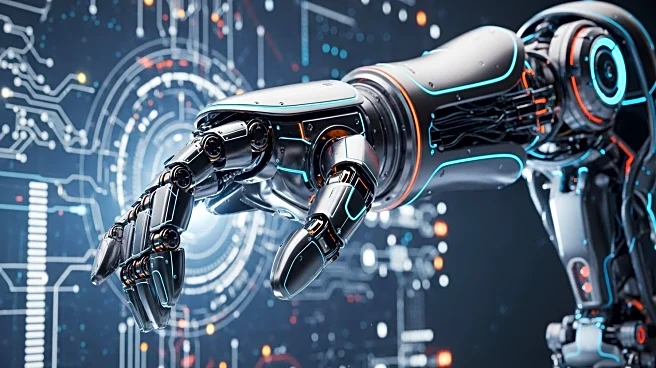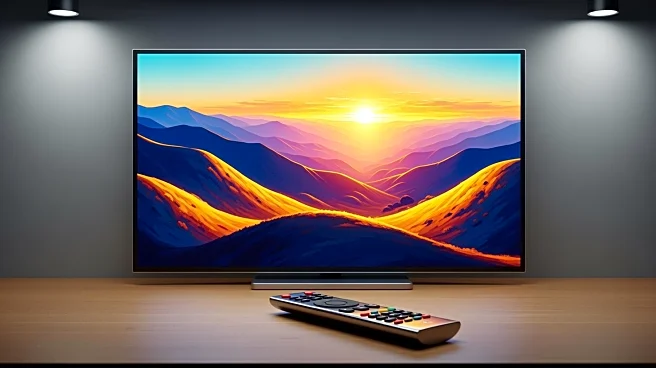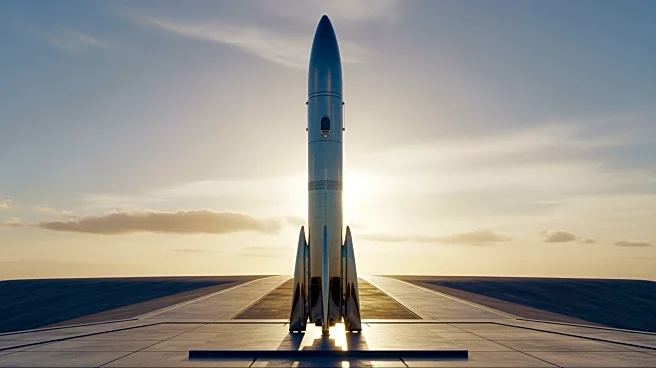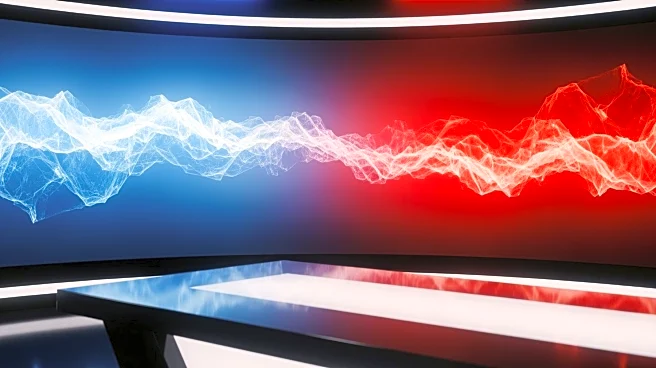What is the story about?
What's Happening?
NVIDIA Corporation has announced the beta release of Newton, an open-source, GPU-accelerated physics engine, at the Conference on Robot Learning (CoRL) 2025 in Seoul, South Korea. Developed in collaboration with Google DeepMind, Disney Research, and NVIDIA, Newton is designed to simulate physical bodies in AI applications. The engine is part of a broader initiative to enhance robotic capabilities, integrating with the Isaac GR00T N1.6 robot foundation model and the Cosmos Reason vision language model. These tools aim to improve robots' ability to handle complex tasks by using reasoning and prior knowledge. The Newton engine, along with Cosmos Reason, allows robots to adapt to new situations by applying multi-step inference and AI reasoning, thus extending their capabilities beyond initial training data.
Why It's Important?
The introduction of the Newton physics engine and GR00T AI represents a significant advancement in the field of robotics, particularly in the development of humanoid robots. By enabling robots to simulate physical interactions and reason through complex tasks, NVIDIA is paving the way for more sophisticated and adaptable robotic systems. This technology has the potential to impact various industries, including manufacturing, healthcare, and service sectors, by providing robots that can perform tasks with greater precision and adaptability. Companies like AeiROBOT, Franka Robotics, and LG Electronics are already evaluating these models for building general-purpose robots, indicating a growing interest in integrating advanced AI into robotics.
What's Next?
NVIDIA plans to continue developing and refining its robotics technology, with upcoming updates to its Cosmos world foundation models. These updates will enhance robot training by generating diverse data using text, image, and video prompts. Additionally, NVIDIA and Lightwheel are co-developing Isaac Lab – Arena, an open-source policy evaluation framework for scalable experimentation and standardized testing. This framework will allow developers to run complex evaluations in simulated environments, further advancing the capabilities of robotic systems. The upcoming RoboBusiness event in Santa Clara, California, will feature discussions on humanoid robotics, with NVIDIA executives presenting keynotes on the future of physical AI.
Beyond the Headlines
The advancements in robotic reasoning and simulation could lead to ethical and cultural shifts in how society interacts with robots. As robots become more capable of understanding and adapting to human environments, questions about their role in daily life, privacy concerns, and the potential for job displacement may arise. The development of humanoid robots that can safely operate in unpredictable environments also raises considerations about the ethical implications of autonomous decision-making in machines.














